1300 001 004
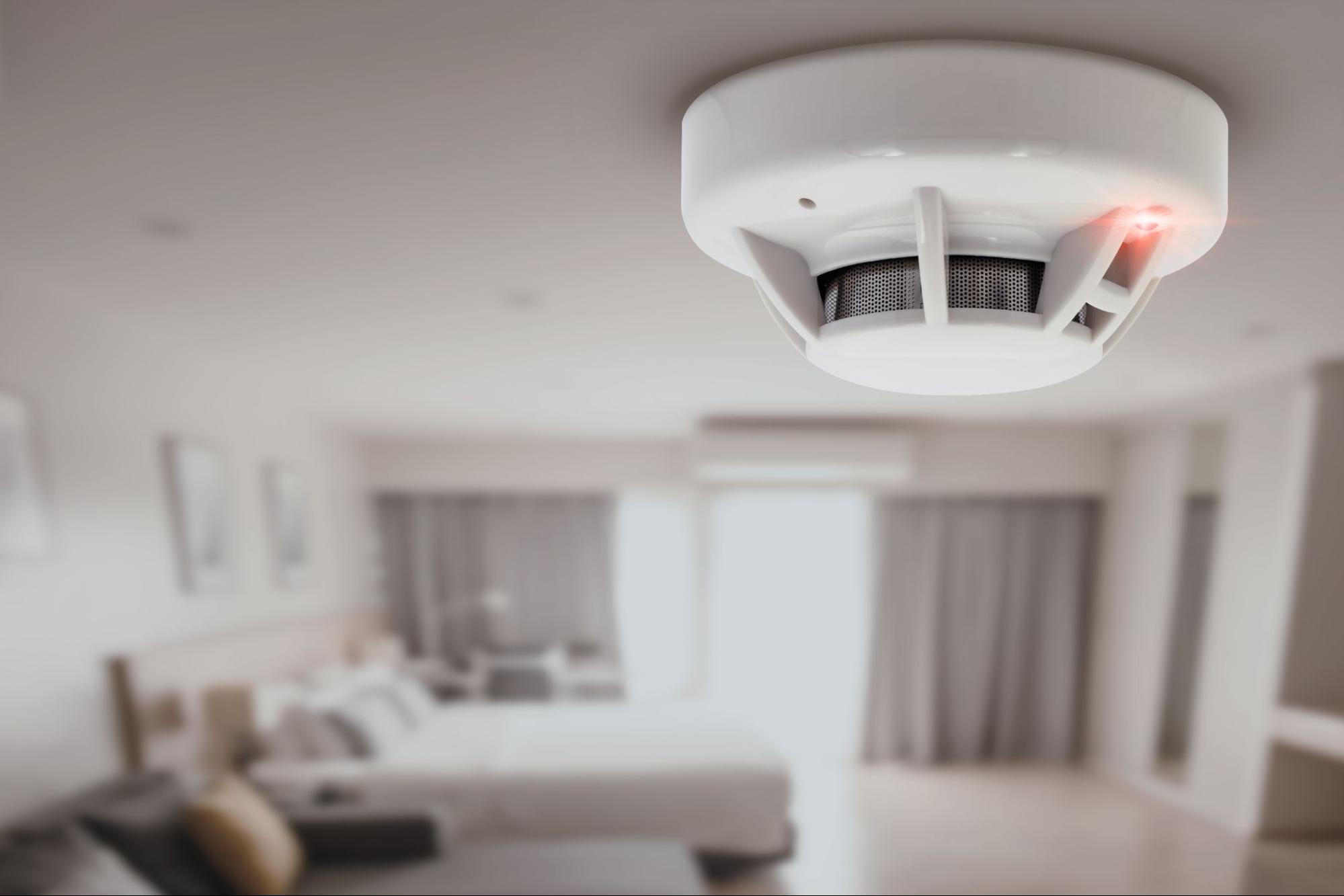
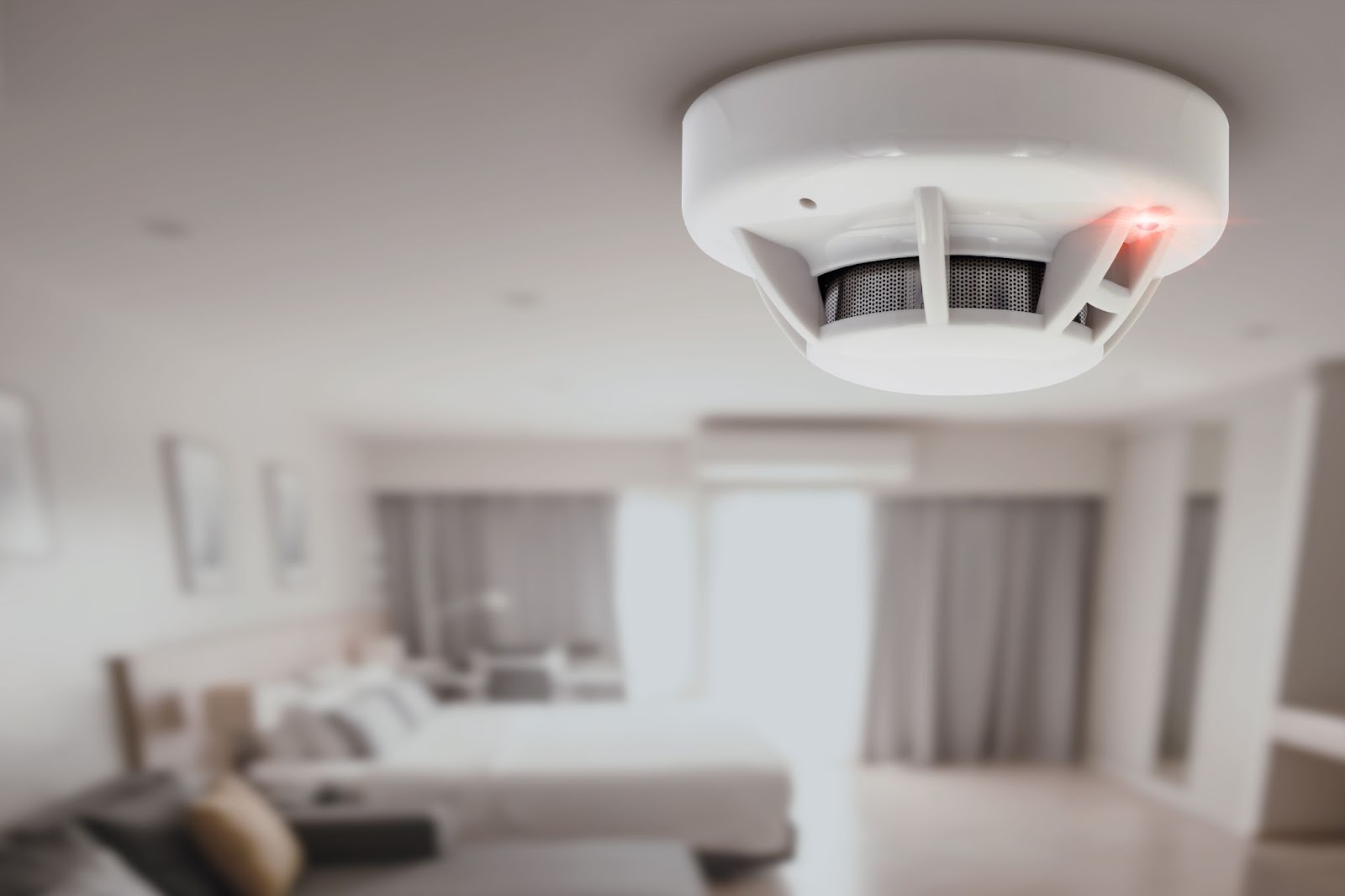
In the event of a fire-related emergency, smoke alarms beep to alert us to the presence of smoke, which may be resulting from a fire, electrical fault, or other danger that could become even more hazardous without early detection. This is what makes smoke alarms a vital component for any fire safety plan – whether for a residential property or even for your business premises.
But what if your smoke alarm is continuously beeping without the presence of smoke? If you’ve recognised different beeps emitting from your smoke alarms, then you may be due for servicing or maintenance of your smoke alarms, or will require diagnostics testing from expert fire safety technicians. It’s important that you learn to understand the difference between the types of beeps from your smoke alarm units, and respond appropriately to each.
Smoke alarms in Australia and New Zealand are required to meet stringent standards, such as AS 3786:2014, to ensure they provide reliable smoke detection and effective alerting. These standards cover their construction, performance, and the patterns they use for beeping, which are not random but are designed to convey specific information.
In this post, we will discuss the most common reasons that a smoke alarm may be beeping, how to identify each one and what actions you should take, and when to contact our qualified professionals from Alexon.
Table of Contents
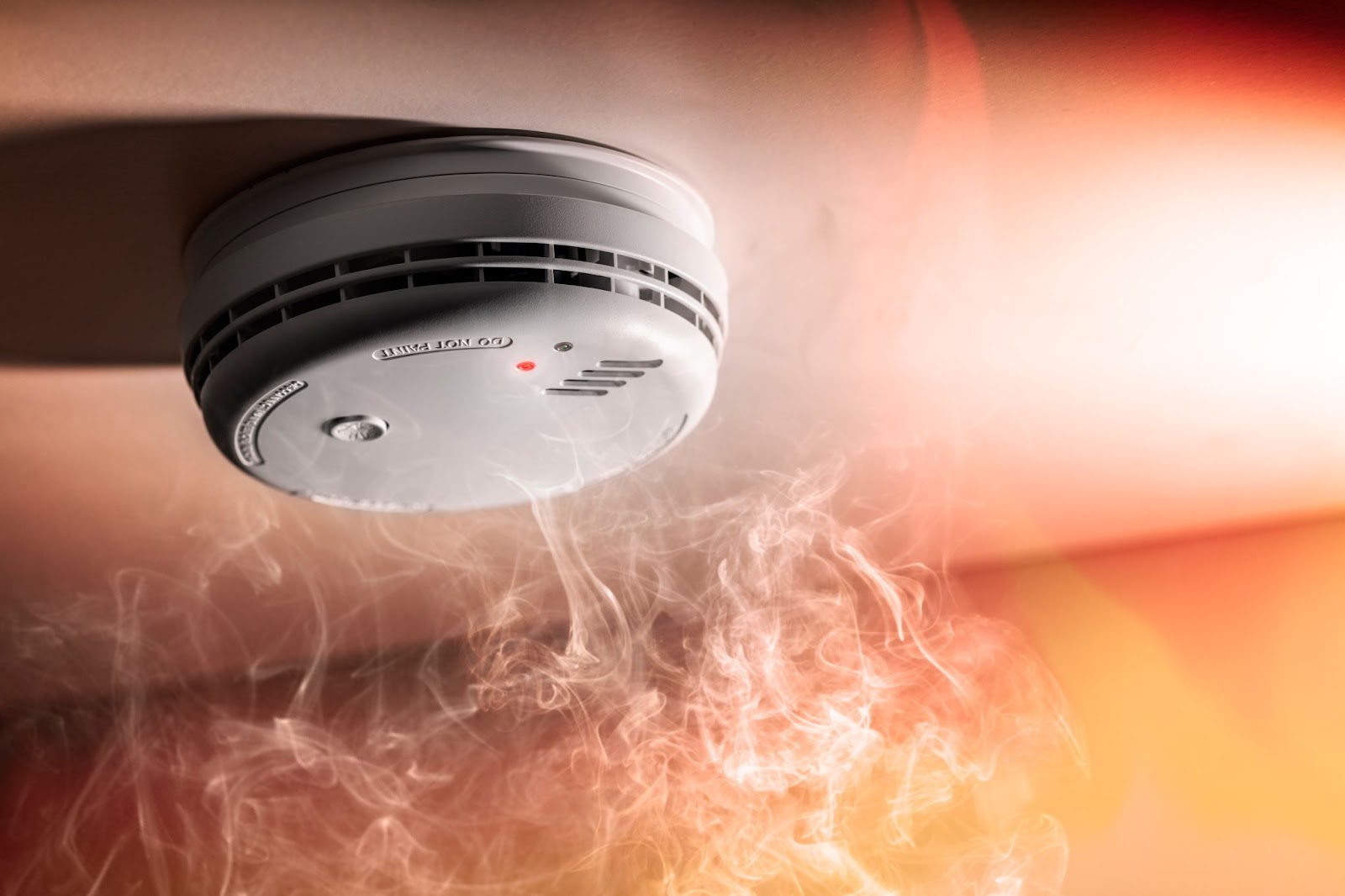
Smoke alarms are an essential safety measure designed to get your attention, and they do so for a reason. Most commonly, smoke alarm beeping is a response to a low battery, a fault in the unit, or a genuine detection of smoke or heat. In newer installations, it can also be something as simple as a battery pull-tab not being removed, or the battery drawer not being properly closed.
Environmental factors can also trigger nuisance alarms. Excessive dust, humidity, or heat (especially in areas like kitchens or bathrooms) can cause false readings if the unit hasn’t been installed correctly or isn’t suited to the location.
Wiring faults, inconsistent mains power, or interference in interconnected systems can also result in unexpected smoke alarm beeping. And if the unit is more than 10 years old, it’s likely due for replacement – most alarms are rated for a decade of use, and will alert you when they’ve reached the end of their service life.
Whether it’s a maintenance issue or a sign of something more serious, a beeping alarm shouldn’t be ignored. If basic checks don’t resolve it, the unit should be inspected in line with AS 3786:2014 and, where applicable, maintained in accordance with AS 1851.
Most alarms follow similar patterns, but always refer to the manufacturer’s guide. In general, here’s what your smoke alarm beeping may be alerting you to:
If your smoke alarm is part of an interconnected system, don’t assume the beeping unit is the source of the issue. You’ll need to trace the network thoroughly to pinpoint the cause for the beeping.
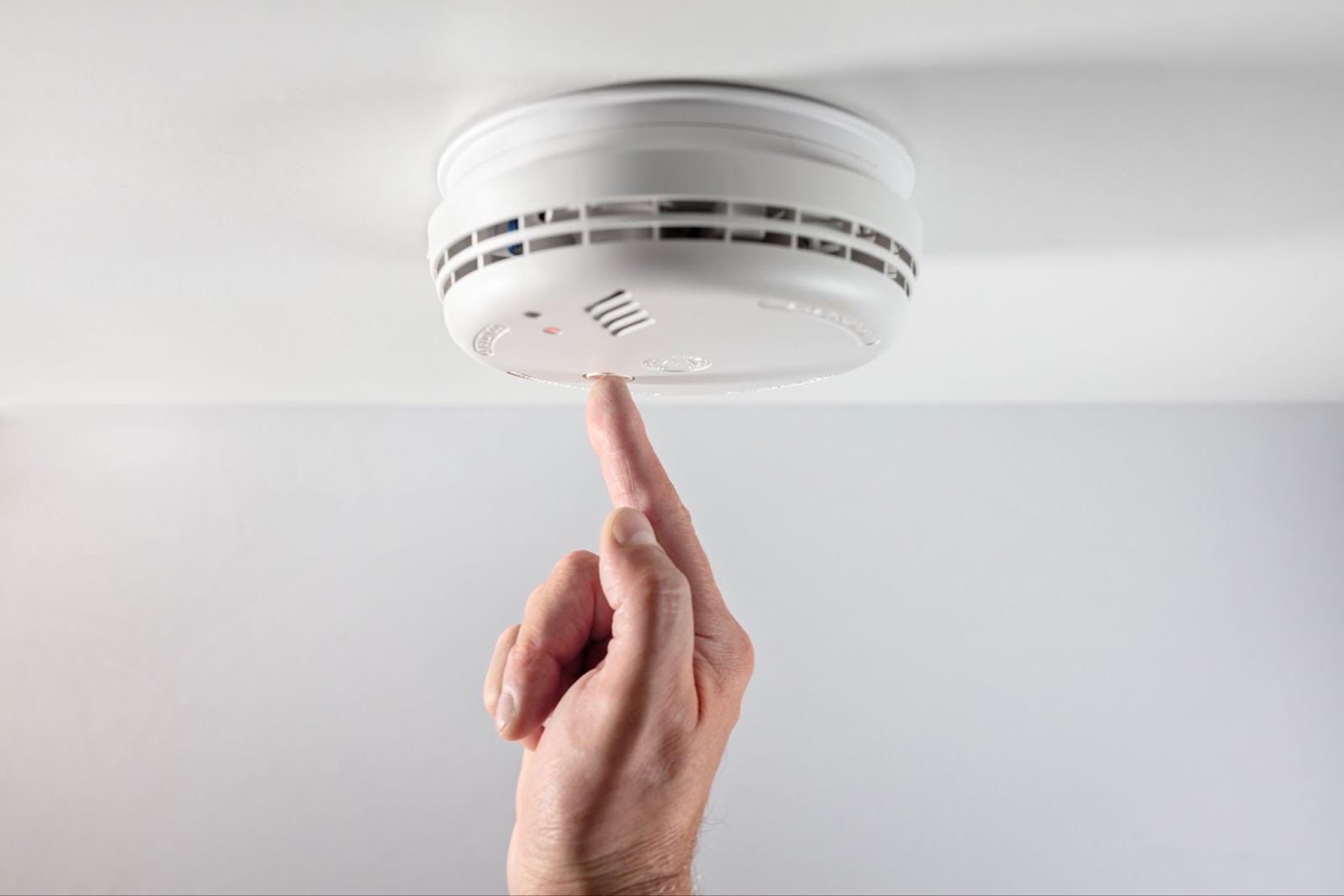
Once the battery’s charge falls below the operational threshold, the alarm emits periodic chirps as a warning. Ignoring low battery signals compromises the ability of your smoke alarm unit to provide early fire detection, creating a significant safety risk and breaching compliance obligations under AS 3786:2014.
Replacement batteries must meet manufacturer specifications (typically 9V alkaline or lithium types) and should be changed promptly upon first indication.
Under the National Construction Code (NCC) and in accordance with AS 3786:2014, all domestic smoke alarms must be replaced every ten years from the date of manufacture – not the date of installation. For landlords and property managers, ensuring alarms are within their service life is a compliance requirement, not a recommendation.
One of the most common issues is simply not knowing how old the device is. If the date of manufacture isn’t visible on the alarm casing, it should be treated as expired and replaced.
Most modern smoke alarms include an “end-of-life” alert, an audible warning that the unit is no longer compliant and must be changed. This sound often resembles a low battery chirp, but the exact tone will vary between manufacturers. If the smoke alarm is beeping and a battery change doesn’t resolve it, it’s likely at the end of its operational life.
Dust and debris inside the unit block the sensing chamber of the alarm. In some circumstances, there can be a false activation of the alarm and a rapid beeping sound.
Smoke and fire alarms can be affected by debris wherever they are installed in your office building or property. These alarm units are sensitive to high-dust areas, flying insects, and flammable gases. Also, avoid installing the smoke alarm near windows, doors, or air-conditioning vents, where external elements may directly affect the sensor’s air.
If your smoke alarm is making a beeping noise, then it is suggested you reinstall it in a different area, or at least make sure it is away from direct heat, windows, doors, or HVAC air vents.
Smoke alarms are sensitive to environmental conditions and designed to detect a particular level of smoke or heat particles. Rapid temperature changes in the room and high humidity may cause the smoke alarm to beep intermittently or sound a false alarm.
Steam, excessive heat, or condensation is often found in bathrooms, kitchens or other enclosed areas and will cause the unit to beep randomly. High humidity and moisture in the air can also cause smoke alarms to emit a low, loud beeping sound.
If your smoke alarm is mains powered (with battery backup) a beeping sound can be caused by a power fault in the unit or the wiring. Power surges or power loss, or even a loose connection, can cause a smoke alarm to beep intermittently.
The age of the house and poor quality electrical work can often cause the smoke alarm to malfunction as there is sometimes no segregation of smoke alarms and other house power circuits during electrical upgrades and renovations.
A continuous loud alarm from your smoke alarm means the alarm has detected smoke or fire. Once the fire alarm sounds it is regarded as a real fire situation, and you should treat it as such. Smoke alarms have a sensing chamber that is calibrated to detect a specific range of size combustion particles. When the smoke or fire particles exceed the specified size, the alarm will automatically be activated and emit a loud noise.
If your smoke alarm is making a continuous loud noise, please exit the building and call the emergency services (or undertake the same as specified in your evacuation plan) and do not disregard the alarm until you have established the cause of the alarm. Smoke alarms have a high-reliability rate when maintained and tested according to AS 1851.
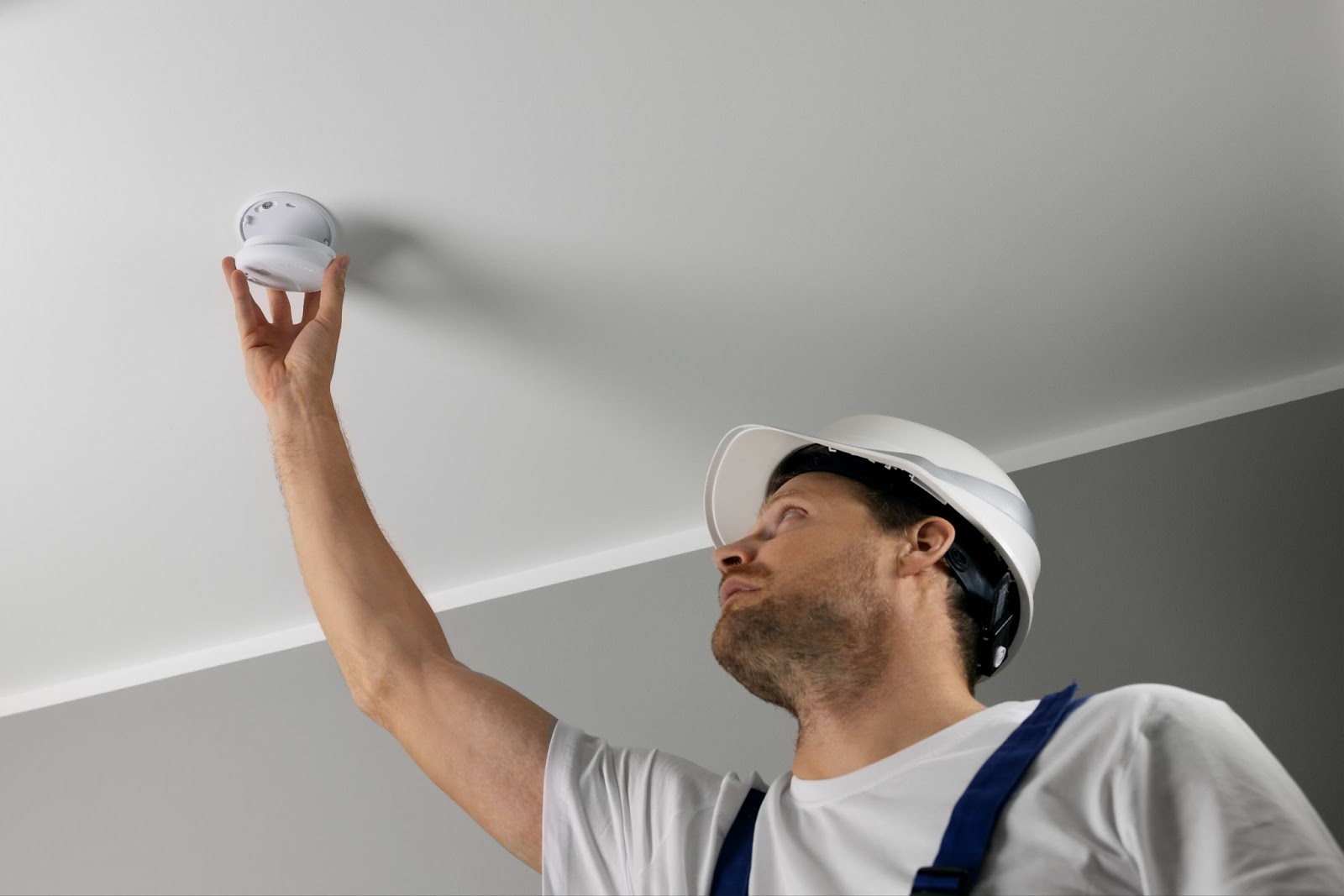
If your smoke alarm keeps chirping even after you’ve cleaned it, reset it, and swapped out the batteries, it might be time to bring in a professional. There could be an internal fault you can’t see, and when it comes to fire safety, it’s not worth taking chances.
A licensed technician can carry out a full inspection of your smoke alarms to make sure they’re compliant, correctly placed, and functioning as intended. They'll also check for wiring faults, outdated hardware, or environmental factors that could be triggering false alerts.
If your alarms are over eight years old, or you’re still relying on standalone units, it might be time to upgrade. Interconnected alarms (whether wired or wireless) ensure that when one goes off, they all sound. Smart alarms go a step further, offering mobile alerts and remote monitoring.
----
If you’re unsure whether your fire safety equipment is up to standard (or you're ready to upgrade to interconnected or smart systems), the Alexon team can help. We’ll assess your space, recommend the best solution, and make sure it’s installed and tested to meet fire safety codes.
Complete the form to request a call
from a friendly Alexon team member.